Deal On Iranian Nuclear Program Falls Apart, And That’s Mostly Not A Good Thing
Thanks largely to France, this weekend's efforts to reach an interim deal on Iran's nuclear program fell apart.
Going into the weekend, it seemed as though significant progress of some kind was being made in the talks in Geneva between Iran and the major world powers regarding Iran’s nuclear research program and international efforts to ensure that the nation does not develop nuclear weapons. While a permanent deal still seemed far off, it did seem as though there was sufficient progress on a temporary deal of some kind that would have led to the lifting of some international sanctions in exchange for some limited concessions by the Iranians. Indeed, the progress seemed to have advanced far enough that Secretary of State John Kerry changed his plans and arrived in Geneva to participate in the talks personally notwithstanding the fact that long time U.S. allies like Israel and Saudi Arabia were publicly and privately expressing strong doubts about the entire process. In the end, though, this latest round of talks ended up failing to produce an agreement thanks in no small part to resistance by the French Government:
GENEVA — Marathon talks between major powers and Iran failed on Sunday to produce a deal to freeze its nuclear program, puncturing days of feverish anticipation and underscoring how hard it will be to forge a lasting solution to Iran’s nuclear ambitions.
Emerging from a last-ditch bargaining session that began Saturday and stretched past midnight, the European Union’s foreign policy chief, Catherine Ashton, and Iran’s foreign minister, Mohammad Javad Zarif, said they had failed to overcome differences. They insisted they had made progress, however, and pledged to return to the table in 10 days to try again, albeit at a lower level.
“A lot of concrete progress has been made, but some differences remain,” Ms. Ashton said at a news conference early Sunday. She appeared alongside Mr. Zarif, who added, “I think it was natural that when we started dealing with the details, there would be differences.”
In the end, though, it was not only divisions between Iran and the major powers that prevented a deal, but fissures within the negotiating group. France objected strenuously that the proposed deal would do too little to curb Iran’s uranium enrichment or to stop the development of a nuclear reactor capable of producing plutonium.
“The Geneva meeting allowed us to advance, but we were not able to conclude because there are still some questions to be addressed,” the French foreign minister, Laurent Fabius, told reporters after the talks ended.
Neither Ms. Ashton nor Mr. Zarif criticized France, saying that it had played a constructive role. But the disappointment was palpable, and the decision to hold the next meeting at the level of political director, not foreign minister, suggested that the two sides were less confident of their ability to bridge the gaps in the next round. “s
For all that, Mr. Zarif tried to put a brave face on the three days of talks, saying that the atmosphere had been good, even if the parties disagreed on the details of a potential agreement.
“What I was looking for was the political determination, willingness and good faith in order to end this,” he said. “I think we’re all on the same wavelength, and that’s important.”
Iranian officials had promoted the possibility of a deal for days, generating an expectant atmosphere that swelled when Secretary of State John Kerry cut short a tour of the Middle East on Friday to join the talks. He was joined by the foreign ministers of Britain, France, Germany and Russia and a vice foreign minister from China.
“There’s no question in my mind that we are closer now, as we leave Geneva, than when we came,” Mr. Kerry said. “It takes time to build confidence between countries that have really been at odds with each other for a long time now.”
The proposal under consideration in Geneva was to have been the first stage of a multipart agreement. It called for Iran to freeze its nuclear program for up to six months to allow negotiations on a long-term agreement without the worry that Iran was racing ahead to build a bomb. In exchange, the West was to have provided some easing of the international sanctions that have battered Iran’s ecffonomy.
While there are reports that the talks also fell apart in part because the Iranians objected to language in a draft agreement dealing with the “right” of Iran to enrich uranium, the news item that many in the west have taken from this weekend has been the supposed role of France in scuttling the deal. Indeed, the news created the odd sight of American hawks praising the socialist government of Francois Hollande for “saving” the world from a bad deal. The Daily Beast’s Christopher Dickey, however, is far less pleased with what the French have done here:
[W]hen foreign ministers convened suddenly at the end of the week in Geneva, anticipating a major breakthrough, many thought the first phase of a deal was done.
Its basic outlines would have given some token relief to Iran from crippling sanctions in exchange for a freeze of its nuclear enrichment operations. In fact the framework for the sanctions, which have made it hard for Iran to sell the oil it depends on for income, forced a massive devaluation of the currency, and exacerbated rampant unemployment, would remain in place. Such details as have leaked suggested the initial relaxation of sanctions would mainly be concerned with some foreign banking transaction. Meanwhile, a pervasive inspection process would assure that Iran could not weaponize the enriched uranium it has on hand without detection. But France insisted that operations of a nuclear reactor at Arak—which is not online yet—be halted, and that current stockpiles of enriched uranium be reduced.
These were the sorts of measures that the other negotiators expected to ensue at future stages of the normalization process. The urgent need right now is to stop the enrichment program that exists—freeze it and inspect it—since if it continues Iran soon will be only months, if not weeks, from procuring sufficient material for a bomb.
As a result of the French posturing, that enrichment probably will continue, at least for the moment. And it’s unlikely the next round of talks later this month, at a technical level, will have the momentum or the authority to stop it. The American Congress is expected to undermine Obama’s ability to cut a deal; while hardliners in Iran are looking for any excuse to quit the negotiations and blame others.
There’s plenty more at the link, including a discussion of what’s actually motivating the French here, which seems to be rooted as much in domestic politics and in changes in how the French are interacting with the Middle East as anything else. There also seems to be no small degree of the same kind of good old fashioned French stubbornness at play here as well, in addition to yet another example of their desire to at least pretend that they are an important player on the world stage. The practical impact of what they’ve done, though, doesn’t seem to be nearly as good as what the hawks in America and Israel are touting. It’s entirely possible that this temporarily deal would’ve been scuttled anyway, but there’s no doubt that some kind of progress was being made in the wake of the Iranian Presidential elections. This could have led to a broader deal down the road. It may still lead there, but it seems likely that the events of this weekend are going to make it much harder to get there.
So, instead of “Thank You France!,” perhaps the world actually ought to be saying “Thanks for nothing, France,” because it’s unclear what turning up the heat on the Iranians is going to do other than undercut whatever movement their might be around Iran’s new President to end the long confrontation with the West while emboldening the hardliners yet again. In the meanwhile, it provides an opening to the hardliners here in the West who, seemingly, won’t be happy with any outcome in Iran that doesn’t result in a war that no rational person should want to fight.
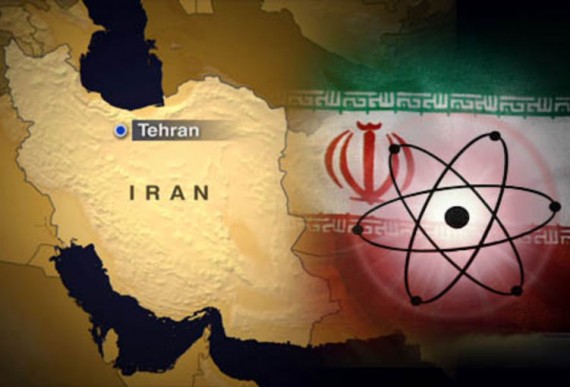

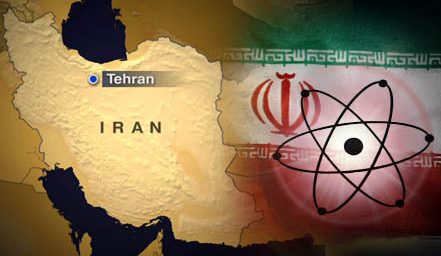
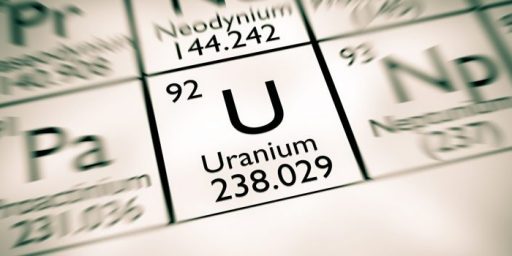
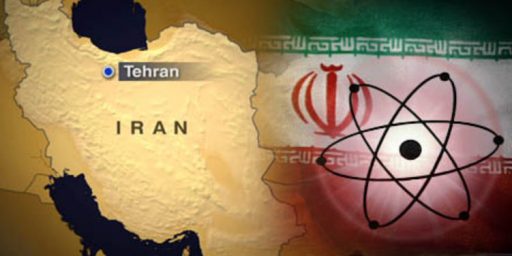
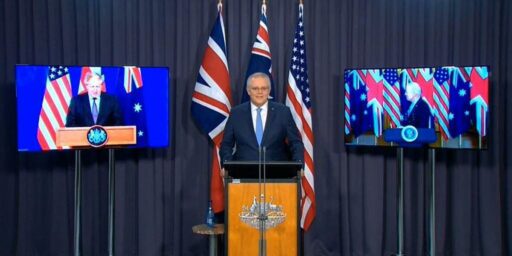

So instead of a taste of what a deal might become, some demand the whole enchilada, knowing full well that will never come out of the kitchen. Their actions tell the tale. They don’t want a nuclear free Iran accepted back on the world stage as a full participant. They want a nuclear free Iran they think they can invade risk free.
Sooner or later, both sides will realize that at this point in history, Iran does not need nuclear arms as they have a strangle hold on half the worlds oil supply should they ever decide to squeeze. It behooves the world entire to have peace and stability at the Straits of Hormuz.
This is really bizarre. I’m going to have to see if the Financial Times has a good analysis. France?! There must be some really corkscrewy insider baseball going on for this policy hairball to have been coughed up.
(Of course, on our side we’ve got the idiots who want to run the US into default, so I really shouldn’t talk about the stupidity of politicians….)
I doubt this is over yet.
Negotiations are a process.
The important thing is that the idiots in this country, like Corker and the Grumpy Old Man, and Butters, are prevented from f’ing it up.
Make them a deal they can’t refuse. Read “Art of the Deal” by Donald Trump. Send Dr. Kissinger or Clinton ( Bill, not Hillary). While they are meeting run Eminem music in the background. On a big screen tv run images from Black Ops 2.
“Old Hickory said we could take ’em by surprise if we don’t open up til we stare ’em in the eyes”
(Horton)
@Tyrell:
Yeah…let’s listen to the biggest buffoon on the planet…and then model foreign policy on that.
Why not just let Jeno’s take over?
WTF….
@Tyrell:
You’re advocating sensory torture?
@Tyrell: Not making any particular point here about Iran and diplomacy, but the Battle of New Orleans was won by regular Army artillery and bad British generalship.
@Tyrell: Are you serious? Trump is a total buffoon. The sort of people who think he can deal are the same sort of people who invest in products from Goldline.
@PJ: Good idea!
Well, at least their still talking which is always a good and to judge from PressTV coverage, that’s the official Iranian line. Of course there’s the expected report of a joint Saudi/Israeli attack, Israeli influence on France, etc.
@Tyrell:
So, you agree, listening to what Trump has written is torture?
@Tyrell:
You do realize that Trump had multiple bankruptcy filings on his casino holdings?
The narrative that France balked turned out to be BS. Kerry said it didn’t happen and Fabius backed him up on that. That story is buried in this article, which (surprise surprise!) has yet another gawdawful, terribly misleading headline.
http://www.bbc.co.uk/news/world-middle-east-24895911
Exceptionally twisted media coverage will be a feature of these negotiations with Iran, I reckon.
This article, and the one on the Daily Beast, doesn’t give France enough credit. It carries a lot of clout in its Middle East dealings.